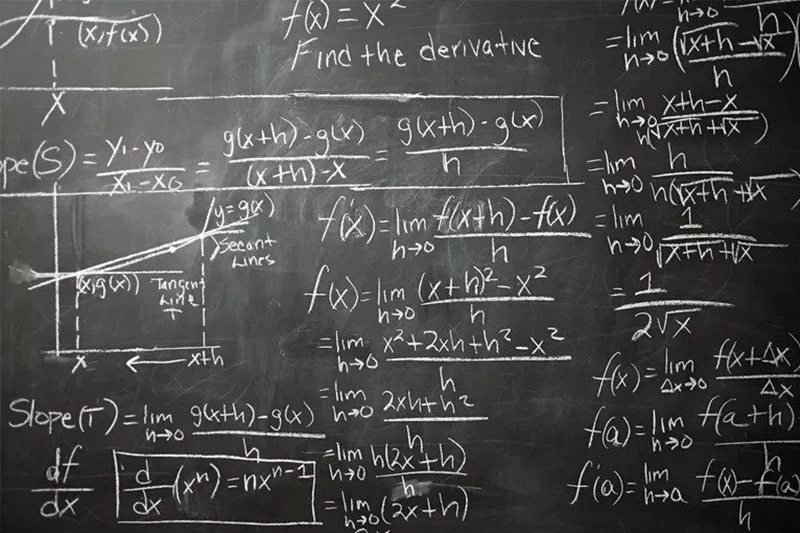
Fundamental of Calculus (Dasar-dasar Kalkulus)
kursus ini membekali mahasiswa dengan pengetahuan matematika dan keterampilan analitik sehingga mampu menerapkan teknik kalkulus untuk memecahkan masalah ilmiah dan rekayasa. Kursus ini mencakup Jenis Bilangan Persamaan Linear dengan Dua dan Tiga Variabel, Pertidaksamaan dan Nilai Mutlak, Domain dan Rentang Fungsi, Sistem Koordinat Cartesian, Silinder, dan Bola, Fungsi Aljabar, Fungsi trigonometri, Komposisi Beberapa Fungsi.
References:
- Varberg, D. E., Purcell, E. J., & Rigdon, S. E. (2007). Calculus: Dale Varberg, Edwin J. Purcell, Steven E. Rigdon. Upper Saddle River, N.J: Pearson Prentice Hall.
Course Fee
Reviews
Schedule
Appointment with tutor(s)
Registration
Basics of Calculus: Numbers and Functions
This session introduce students to basics of calculus, basic operations, and functions in university calculus. This session includes materials about:
- Types of Numbers
- Linear Equation with Two and Three Variables
- Inequalities and Absolute Value
- Domain and Range of Function
- Cartesian, Cylindrical, and Spherical Coordinate System
- Algebraic Function
- Trigonometric Function
- Composition of Several Function
Limits
This session discuss basic limit operations and introduction to derivative. The materials discussed includes:
- Limit Basic Theorem
- Limits Involving Polynomial Function
- Limits Involving Trigonometric Function
- Limits at Infinity
- Continuity of Function
- Application of Limits
Derivatives and Its Application
This session discuss derivation problems in science and engineering cases. THe materials discussed includes:
- Basic Concepts of Derivatives
- Rules for Finding Derivatives
- The Chain Rule and Leibniz Notation
- Derivatives for Polynomial Function
- Derivatives for Trigonometric Function
- High-Order Derivation
- Implicite Differentiation
- Maxima and Minima of Function
- Monotonicity and Concavity of Function
- Local Extrema and Extrema on Open Intervals
- Graphing Function using Calculus
- The Mean Value Theorem
- Anti-derivatives
- Introduction to Differential Equations
Integrals and Its Application
This session discuss integration problems in science and engineering cases. THe materials discussed includes:
- Definite and Indefinite Integral
- 1st Fundamental Calculus Theorem
- 2nd Fundamental Calculus Theorem
- Method of Substitution
- The Mean Value Theorem for Integral
- Numerical Integration: Riemann Sum, Trapezoidal Rule, Simpson's Rule
- The Area of Plane Region
- Volume of Solids: Slabs, Disks, Washers
- Volume of Solids of Revolution: Shells
- Length of A Plane Curve
- Work and Fluid Force
- Moments and Center of Mass
- Probability and Random Variables
Transcendental Function
Transcendental function is one of the most common functions used in engineering and science. This session discuss materials:
- Natural Logarithm and Exponential Functions
- Inverse Function and Their Derivatives
- General Logarithm and Exponential Functions
- Exponential Growth and Decay
- 1st Order Linear Differential Equation
- Inverse Trigonometric Function and Their Derivatives
- Hyperbolic Function and Their Inverse
Advanced Techniques of Integration
Integration, as one of the breakthrough in the world of calculus, need to be studied thoroughly to understand advanced concept in science and engineering problems. This session discuss:
- Basic Integration Rules
- Integration by Parts
- Trigonometric Integrals
- Rationalizing Substitutions
- Partial Fraction Method for Integration
- Strategies for Integration
Indeterminate Forms and Improper Integrals
Indeterminate integrals discuss how integrals are solved for unknown domains. This sessions includes materials in:
- Indeterminate Types of 0/0
- Other Indeterminate Forms
- Improper Integrals: Infinite Limits of Integration
- Improper Integrals: Infinite Integrands
Infinite Series
Infininte series and sequences is an introduction and one way to solve calculus problems. This session includes:
- Infinite Series and Sequences
- Positive Series: The Integral Test, Other Tests
- Alternating Series, Absolute Convergences, and Conditional Convergences
- Power Series
- Taylor and MacLaurin Series
- Taylor Approximation to A Function
Conics and Polar Coordinates
One of the method to solve calculus problems are by conical and polar coordinates. This session discuss:
- The Parabola, Ellipses, and Hyperbolas
- Polar Coordinate System
- Parametric Function
- Graphs of Polar Equations
- Calculus in Polar Coordinates
Geometry in Space and Vectors
This session is introduction to solve mathematical problems in geometry by using space and vectors approach. The materials in this session includes:
- 3D-Cartesian Coordinate System
- Vector and Scalar
- Basic Vector Operations: Dot Product, Cross Product
- Vector-Valued Functions and Curvilinear Motion
- Lines and Tangent Lines in 3D-System
- Surfaces in 3D-System
Derivatives for Functions of Two or More Variables
Derivatives with more than two variables commonly found in engineering problems, especially in transient system. This session will discuss:
- Basics Understanding: Function of Two or More Variables
- Partial Derivatives
- Limits and Continuity of Function
- Differentiability
- Directional Derivatives and Gradients
- The Chain Rule
- Tangent Planes and Approximation
- Maxima and Minima of Function
- Method of Lagrange
Multiple Integrals
Multiple integrals problems in engineering and science can be found in complex systems. This introduction course will discuss:
- Double Integrals over Rectangles, Non-Rectangular Region, and Polar Coordinate
- Iterated Integrals
- Triple Integrals in Cartesian, Cylindrical, and Spherical Coordinates
- Change of Variables in Multiple Integrals

